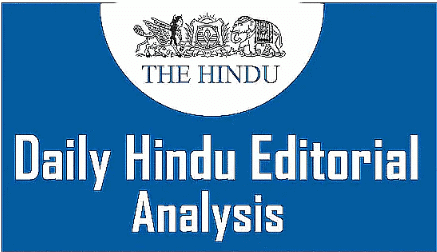UPSC Exam > UPSC Notes > Current Affairs & Hindu Analysis: Daily, Weekly & Monthly > The Hindu Editorial Analysis- 22nd January 2025
The Hindu Editorial Analysis- 22nd January 2025 | Current Affairs & Hindu Analysis: Daily, Weekly & Monthly - UPSC PDF Download

Time to seize the promise of the U.S.-India nuclear deal
Why in News?
The U.S.-India civil nuclear deal, finalized in 2008, aimed to strengthen bilateral relations but currently faces challenges related to liability, technology, and cost barriers.
A Transformative Agreement
- The U.S.-India civil nuclear deal, which was approved by the U.S. Congress in 2008, marked a significant shift in bilateral relations after years of negotiation starting in 2005.
- This agreement ushered in a new era of defense and strategic cooperation between the U.S. and India, fostering trust in handling advanced technologies.
- It laid the groundwork for future collaborations in defense, technology transfer, and intelligence sharing.
India – US Civil Nuclear Deal (123 Agreement)
- Background: The civil nuclear deal, signed in 2008, represented a significant shift in U.S. policy, ending India’s nuclear isolation that had followed its nuclear tests in 1974.
- Key Objective: The primary aim was to facilitate civil nuclear energy cooperation while ensuring India’s non-proliferation commitments.
- Nuclear Supplier Group (NSG) Waiver: India received a special waiver allowing it to engage in global civil nuclear trade, despite not being a signatory to the Nuclear Non-Proliferation Treaty (NPT).
- Provisions: The United States agreed to provide nuclear fuel, technology, and reactors for India’s civilian nuclear energy program. In return, India committed to separating its civil and military nuclear facilities, placing civil facilities under International Atomic Energy Agency (IAEA) safeguards.
- Strategic Significance: The deal strengthened the India-U.S. strategic partnership, boosted India’s energy security and nuclear power capacity, and positioned India as a responsible nuclear power on the global stage.
Unrealized Promises of the Deal
- The anticipated benefits in the energy and commercial sectors from the U.S.-India civil nuclear deal have not come to fruition.
- The deal envisioned the construction of nuclear power plants in India using U.S. technology, which was expected to create jobs and generate clean energy.
- For instance, Westinghouse had plans to build six nuclear plants in India, announced in 2016, but these plans have yet to materialize.
Recent Developments in Regulatory Frameworks
- U.S. National Security Adviser Jake Sullivan recently highlighted efforts to eliminate barriers to civil nuclear cooperation between the U.S. and India.
- Initially, around 200 Indian entities were on the U.S. Entity List, which restricted business opportunities with these entities.
- Most of these entities were removed from the list after the deal was signed, but some remained due to concerns about potential technology leakage.
The Liability Risk Issue
- India’s Civil Liability for Nuclear Damage Act, 2010, differs from international norms by placing liability on suppliers instead of operators.
- This shift has deterred major U.S. companies, such as General Electric (GE) and Westinghouse, from participating in nuclear projects in India.
- To mitigate liability concerns, India introduced an insurance scheme involving the General Insurance Corporation and other government entities.
- While Russian companies have accepted this insurance arrangement, U.S. companies have remained hesitant.
Challenges in Technology and Costs
- The rapid pace of advancements in nuclear technology poses challenges for U.S. companies in meeting India’s evolving expectations.
- Additionally, cost overruns in U.S. nuclear projects have raised concerns regarding the affordability of these projects for Indian consumers.
- Indian officials are cautious about engaging in projects that could lead to increased electricity costs without delivering adequate benefits.
Need for Joint Efforts
- Overcoming the challenges related to liability, technology, and cost in the U.S.-India civil nuclear deal requires collaborative efforts.
- It is essential for the U.S. government, Indian authorities, and nuclear companies to work together to address these issues.
- Realizing the full potential of the deal could bring significant benefits, including increased clean energy production and strengthened ties between the U.S. and India.
Conclusion
- The U.S.-India civil nuclear deal stands as a significant milestone in the evolution of bilateral relations between the two countries.
- However, to unlock the full promise of this agreement, it is crucial to address and resolve the existing challenges related to liability, technology, and cost.
PYQ
In what ways would the ongoing US-Iran Nuclear Pact Controversy affect the national interest of India? How should India respond to this situation? (250 words/15m) (UPSC CSE (M) GS-2 2018)
The document The Hindu Editorial Analysis- 22nd January 2025 | Current Affairs & Hindu Analysis: Daily, Weekly & Monthly - UPSC is a part of the UPSC Course Current Affairs & Hindu Analysis: Daily, Weekly & Monthly.
All you need of UPSC at this link: UPSC
|
38 videos|5288 docs|1117 tests
|
Related Searches
















